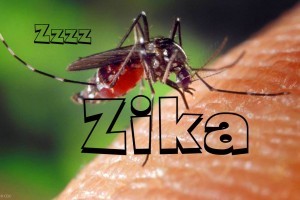 The Caribbean Public Health Agency again urging people to avoid being bitten by mosquitoes. CARPHA has already confirmed that there are now 5 cases of Zika
The Caribbean Public Health Agency again urging people to avoid being bitten by mosquitoes. CARPHA has already confirmed that there are now 5 cases of Zika
virus in a territory of the region. But in its latest release the agency is still not saying where the virus has been found. Zika is a viral disease, transmitted by the Aedes Aegypti mosquito, the same insect vector for Dengue and Chikungunya.
While there is no evidence to date that Zika has spread to other Caribbean countries, Dr. Hospedales, is calling on Caricom member states to continue to strengthen their surveillance programmes. He says member states must remain vigilant and step up their vector control.
Given that a diagnosis of Zika can only be confirmed by laboratory testing, CARPHA has also provided chief medical officers throughout the region with guidelines for clinicians to follow when sending samples of suspected cases of the virus to the agency for testing. This is the first time Zika has been detected in Caricom, leading CARPHA’s executive director, Dr. James Hospedales, to emphasize the need for prevention and control measures.
CARPHA’s continued appeal to avoid being bitten is even more critical for women who are pregnant, as the Ministry of Health in Brazil investigates a link between Zika and an increased incidence of microcephaly. Microcephaly is a condition where the size of an infant’s head is smaller than normal, because of slowed or incomplete brain development.
CARPHA says it is also important to destroy all breeding sites for mosquitoes in and around the home.The symptoms of the Zika virus are very similar to that of Dengue and Chikungunya and include fever, muscle and joint pain, conjunctivitis,
headache, nausea, and rash. There is no vaccine or treatment for Zika. However, symptoms which last approximately four to seven days are treatable.
(newscentre5)





 LATEST ON
LATEST ON
Tweets by @i955fmTWITTER
FACEBOOK
This message is only visible to admins.
Problem displaying Facebook posts.
Click to show error